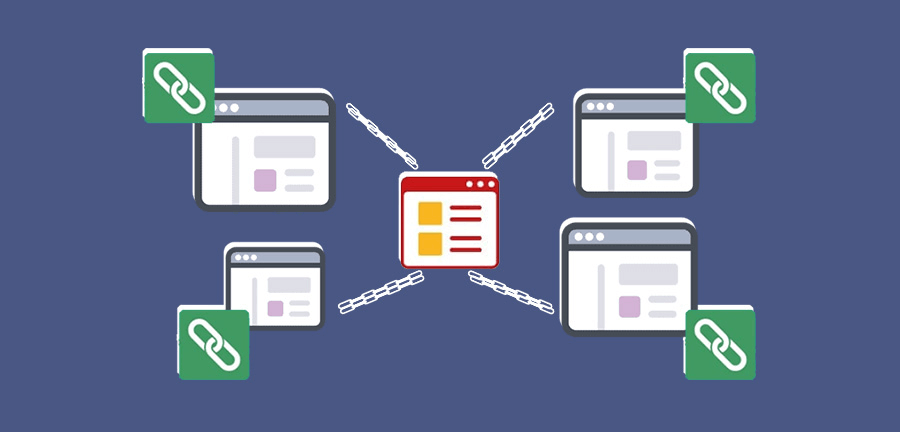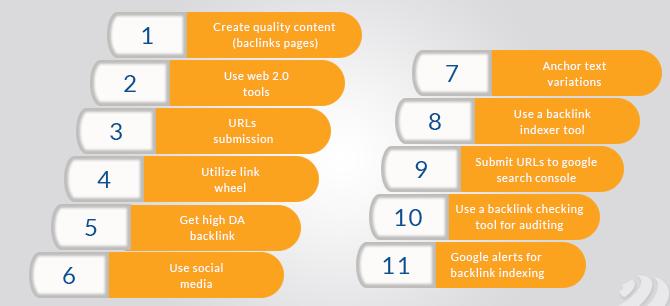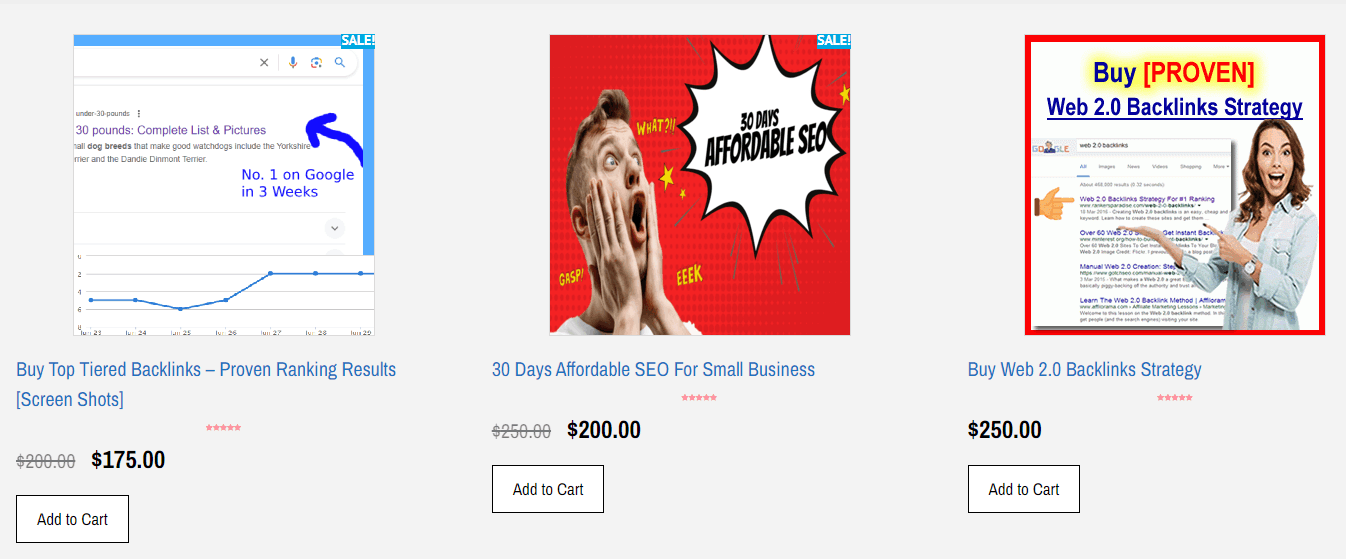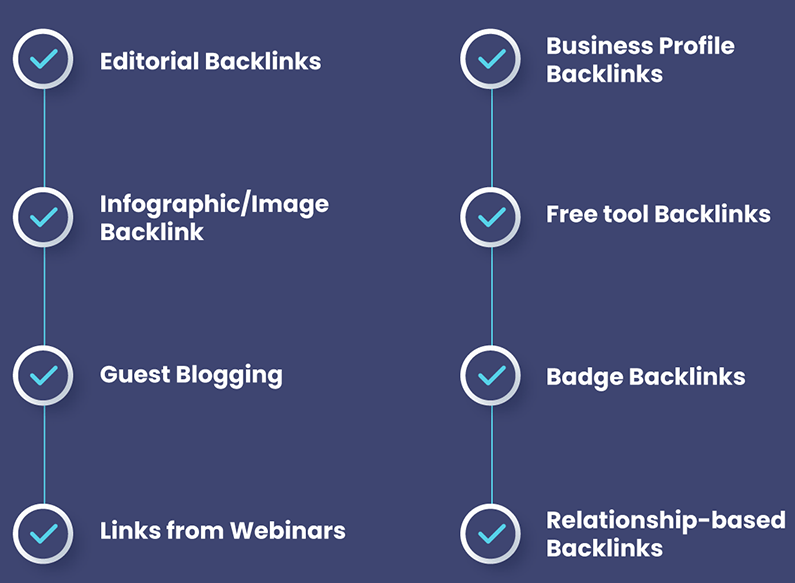In the ever-evolving landscape of SEO, buying quality backlinks has become a crucial strategy for boosting your website’s search engine ranking. But not all backlinks are created equal. Understanding how to purchase high-quality backlinks can make a significant difference in your site’s visibility and authority. This comprehensive guide will walk you through everything you need to know about buying quality backlinks and how to leverage them effectively for your SEO strategy.
What Are Quality Backlinks?
Before diving into the process of buying backlinks, it’s essential to understand what constitutes a quality backlink. Quality backlinks are links from authoritative and relevant sites that point to your website. These links are valuable because they enhance your site’s credibility and improve its ranking in search engine results pages (SERPs).
When buying backlinks, focus on obtaining links from high domain authority websites that are relevant to your niche. Avoid links from spammy or unrelated sources, as they can harm your SEO efforts.
Authority of the Linking Site
One of the most critical factors in determining the quality of a backlink is the authority of the linking site. Authority refers to how well-regarded and influential a website is within its domain. This is often measured using metrics such as Domain Authority (DA) or Domain Rating (DR). High-authority sites have a greater impact on your SEO because their endorsement is seen as more valuable by search engines.
For example, a backlink from a leading industry publication or a well-respected news outlet will carry more weight than a link from a lesser-known or less reputable site. These high-authority backlinks contribute significantly to your website’s credibility and can lead to better search engine rankings.
Relevance to Your Niche
Relevance is another crucial aspect of quality backlinks. A backlink from a site that is relevant to your niche or industry is more beneficial than one from an unrelated field. Relevant backlinks provide contextual connections between your site and the linking site, which helps search engines understand the subject matter of your content.
For instance, if you run a website about digital marketing, a backlink from a well-regarded marketing blog or industry-specific site is more valuable than a link from a general news site. Relevant backlinks enhance the topical authority of your site and improve its chances of ranking higher for related keywords.

Placement and Anchor Text
The placement of the backlink on the linking page and the anchor text used are also important factors. Ideally, the backlink should be placed within the content of a page rather than in a footer or sidebar. Contextual links within the body of the content are more valuable as they are seen as more natural and relevant.
Anchor text, the clickable text in a hyperlink, also plays a significant role. Descriptive and keyword-rich anchor text can help improve your site’s relevance for specific search queries. However, it’s important to use anchor text naturally and avoid over-optimization, as search engines can penalize sites for manipulative practices.
Quality of the Linking Page
The overall quality of the page that contains the backlink is also a critical factor. A high-quality page should have useful, well-written content and should not be part of a link farm or a spammy site. Pages with high-quality content and a good user experience provide better link value.
Additionally, the presence of other quality backlinks on the same page can indicate that the page is well-regarded and authoritative. Pages with a clean, professional design and relevant, valuable content are more likely to provide high-quality backlinks.
Natural Link Profile
A quality backlink should fit naturally within the link profile of your website. This means having a diverse mix of backlinks from various sources and types of websites. A natural link profile includes backlinks from different domains, varying types of content (e.g., blog posts, articles, reviews), and a mix of follow and no-follow links.
An unnatural link profile, characterized by a high volume of backlinks from a single source or low-quality sites, can raise red flags with search engines and potentially lead to penalties. Building a diverse and natural link profile helps establish your site’s credibility and authority over time.
Longevity and Stability
Finally, the longevity and stability of the backlink also matter. Backlinks from sites that have been around for a long time and maintain a stable presence are generally more valuable than those from newly created or rapidly changing sites. Long-standing sites with a history of consistent quality and relevance tend to provide more reliable and enduring link value.
Why Buying Quality Backlinks Is Important
- Enhanced Search Engine Rankings: Quality backlinks signal to search engines that your site is trustworthy and authoritative. This can lead to improved rankings on SERPs, making it easier for potential customers to find you.
- Increased Referral Traffic: Backlinks from reputable sites can drive targeted traffic to your website. Users clicking on these links are likely to be interested in your content or products, leading to higher conversion rates.
- Faster Indexing: Search engines use backlinks to discover new pages on your site. Quality backlinks can help your pages get indexed more quickly, making them available to users sooner.
1. Enhanced Search Engine Rankings
One of the primary reasons to buy quality backlinks is their significant impact on your search engine rankings. Search engines like Google use backlinks as a key ranking factor. A high-quality backlink acts as a vote of confidence from one site to another, signaling to search engines that your site is trustworthy and authoritative.
When you acquire backlinks from reputable sites within your niche, search engines interpret these links as endorsements of your content’s relevance and quality. This can lead to higher rankings on search engine results pages (SERPs), making it easier for users to find your site. Essentially, quality backlinks help build your site’s credibility and authority in the eyes of search engines, leading to better organic visibility.
2. Increased Referral Traffic
Quality backlinks do more than just boost your search engine rankings; they can also drive valuable referral traffic to your website. When a reputable site links to your content, its audience is likely to click on the link, leading to a flow of targeted visitors to your site.
For instance, if your website is mentioned in a well-read industry blog or a respected news outlet, users who find that content relevant will follow the link to your site. This not only increases traffic but also brings in visitors who are more likely to be interested in your products or services, leading to higher engagement and conversion rates.
3. Faster Indexing
Backlinks play a crucial role in helping search engines discover and index new content on your site. When a high-authority site links to your page, it acts as a signal to search engines that your content is worth noting. This can expedite the process of indexing new pages and content on your website.
For websites with fresh or regularly updated content, buying quality backlinks can help ensure that your latest posts and pages are indexed quickly. Faster indexing means that your new content becomes available to users sooner, which can be particularly beneficial for time-sensitive topics or promotions.

4. Improved Domain Authority
Domain Authority (DA) is a metric that predicts how well a website will rank on search engines. Buying quality backlinks from high-authority sites can significantly improve your site’s DA. Higher DA correlates with better search engine performance, as it indicates a strong and trustworthy site.
By strategically acquiring backlinks from authoritative sources, you enhance your site’s overall authority and reputation. This can lead to sustained improvements in rankings and can also provide a competitive edge in your niche.
5. Building Relationships and Networking
Purchasing backlinks often involves engaging with other site owners, publishers, or industry influencers. This process can lead to valuable relationships and networking opportunities. Building these connections can open doors to further collaborations, guest posting opportunities, and other forms of partnership that can benefit your site beyond just backlinks.
Networking with authoritative figures in your industry can also provide additional exposure and credibility. Positive relationships with influential sites can lead to more natural backlink opportunities and enhance your site’s overall online presence.
6. Competitive Advantage
In highly competitive industries, buying quality backlinks can give you an edge over your competitors. If your rivals are also investing in backlinks but you focus on acquiring higher-quality and more relevant links, you can outpace them in search engine rankings and traffic.
By analyzing your competitors’ backlink profiles and investing in superior link-building strategies, you can gain a strategic advantage. Quality backlinks can help you capture more market share and attract a larger audience, making it easier to outperform competitors in search results.
7. Long-Term SEO Benefits
Investing in quality backlinks is not just a short-term strategy but a long-term investment in your site’s SEO health. High-quality backlinks tend to have a lasting impact on your search engine rankings and domain authority. Unlike temporary traffic boosts or quick fixes, well-chosen backlinks contribute to sustainable SEO success.
Over time, the cumulative effect of quality backlinks can lead to consistent improvements in rankings, traffic, and overall site performance. This long-term benefit makes buying quality backlinks a worthwhile investment for any serious SEO strategy.
How to Buy Quality Backlinks
- Research and Identify Reputable Sources: Start by identifying high-authority websites within your niche that accept backlink placements. Tools like Ahrefs and Moz can help you find sites with strong domain authority.
- Evaluate the Site’s Relevance: Ensure the sites you’re considering for backlink purchases are relevant to your industry or niche. Relevance increases the likelihood that the backlink will positively impact your SEO.
- Check the Link’s Quality: Look at the site’s overall health and the quality of its existing backlinks. Avoid sites with spammy links or low-quality content, as these can negatively affect your site’s reputation.
- Negotiate and Purchase: Once you’ve identified suitable sites, negotiate the terms and purchase the backlinks. Ensure you get a clear agreement on the placement, anchor text, and duration of the backlink.
1. Research and Identify Reputable Sources
The first step in buying quality backlinks is identifying reputable sources where you can acquire these links. Here’s how you can effectively conduct this research:
- Use SEO Tools: Tools like Ahrefs, Moz, and SEMrush are invaluable for finding high-authority sites in your niche. These tools allow you to analyze backlink profiles of competitors and identify potential link-building opportunities.
- Analyze Competitor Backlinks: Look at the backlinks of competitors who are ranking well for your target keywords. This can help you discover sites that are willing to provide backlinks and give you an idea of the quality and relevance of those links.
- Seek Out Industry-Specific Sites: Focus on sites within your industry or niche that have high domain authority. Industry-specific sites are more likely to provide relevant backlinks that will benefit your SEO.

2. Evaluate the Site’s Relevance
Once you have identified potential sources, evaluate their relevance to your site. This involves:
- Checking Niche Relevance: Ensure that the site linking to you is relevant to your industry or content. For example, if you run a health blog, backlinks from health-related sites are more valuable than those from unrelated fields.
- Reviewing Content Quality: Assess the quality of the content on the linking site. High-quality, well-written content indicates that the site is authoritative and maintains a good reputation.
- Examining Link Context: Look at the context in which your backlink will be placed. Ideally, it should be embedded within relevant and informative content rather than in a footer or sidebar.
3. Check the Link’s Quality
Assessing the quality of the backlink itself is crucial. Consider the following factors:
- Domain Authority (DA): Verify the domain authority of the linking site. Higher DA indicates a more authoritative site, which translates to more valuable backlinks.
- Page Authority (PA): Evaluate the authority of the specific page that will host your backlink. A page with high PA provides more value than one with low authority.
- Link Profile Analysis: Ensure that the linking site has a natural and healthy link profile. Avoid sites with a high number of spammy or low-quality backlinks, as these can negatively impact your site’s SEO.
4. Negotiate and Purchase
After identifying suitable sites, the next step is negotiating and purchasing the backlinks. Here’s how to approach this:
- Reach Out Professionally: Contact the site owner or webmaster with a professional and clear proposal. Explain the value you can offer and why a backlink from their site would be mutually beneficial.
- Negotiate Terms: Discuss the terms of the backlink placement, including anchor text, placement location, and duration. Ensure that you agree on all aspects before finalizing the deal.
- Use Trusted Platforms: Consider using reputable platforms or agencies that specialize in link-building services. These platforms often have established relationships with high-quality sites and can help facilitate the purchase process.
5. Monitor and Evaluate Performance
After acquiring backlinks, it’s essential to monitor their performance and impact on your SEO. This involves:
- Tracking Rankings: Use SEO tools to track changes in your search engine rankings following the acquisition of new backlinks. Monitor for any improvements in keyword rankings and overall visibility.
- Analyzing Referral Traffic: Check your site’s analytics to see if the new backlinks are driving targeted referral traffic. This can help you gauge the effectiveness of the backlinks in attracting relevant visitors.
- Assessing Link Quality: Periodically review the quality of the backlinks to ensure they remain valuable. If you notice any issues, such as broken links or changes in the linking site’s status, take appropriate action.
6. Avoid Common Pitfalls
While buying backlinks can be effective, it’s important to avoid common pitfalls that can harm your SEO efforts:
- Avoid Spammy Sites: Steer clear of sites with a history of spammy or manipulative SEO practices. Links from such sites can lead to penalties from search engines.
- Beware of Over-Optimization: Don’t overuse exact-match anchor text, as this can appear manipulative to search engines. Use a natural mix of anchor text for a more organic link profile.
- Do Not Rely Solely on Purchased Links: While buying backlinks can be beneficial, it should be part of a broader SEO strategy. Focus on creating high-quality content and engaging in other link-building activities to complement your efforts.
Best Practices for Buying Quality Backlinks
- Diversify Your Link Profile: Avoid putting all your eggs in one basket. Diversify your backlink sources to include different types of sites and link placements. This creates a natural-looking backlink profile.
- Monitor and Adjust: After purchasing backlinks, continuously monitor their performance. Use SEO tools to track their impact on your rankings and make adjustments as needed.
- Avoid Black-Hat Techniques: Stay away from shady practices like buying backlinks from link farms or using automated link-building tools. These methods can lead to penalties from search engines.
- Focus on Content Quality: While backlinks are important, they should be part of a broader SEO strategy that includes high-quality content and a well-optimized site structure.
1. Diversify Your Link Profile
A diverse backlink profile is crucial for maintaining a natural and healthy link profile. Here’s how to achieve this:
- Variety of Sources: Obtain backlinks from a range of websites and domains. This includes industry blogs, news sites, forums, and directories. A varied link profile looks more natural to search engines and reduces the risk of appearing manipulative.
- Different Types of Links: Aim for a mix of link types, such as contextual links (within content), guest posts, directory listings, and social media links. This diversity helps create a well-rounded link profile.
- Avoid Over-Reliance on One Source: Don’t rely heavily on backlinks from a single source or type of site. Over-reliance on one source can appear unnatural and may lead to penalties.

2. Monitor and Adjust Your Backlink Strategy
Regular monitoring and adjustment are key to maintaining a healthy backlink profile. Here’s how to manage your backlinks effectively:
- Use SEO Tools: Leverage tools like Google Search Console, Ahrefs, and SEMrush to track your backlinks. These tools provide insights into the performance of your links and alert you to any issues.
- Assess Performance: Evaluate the impact of your backlinks on search engine rankings, traffic, and domain authority. If certain backlinks are not providing the expected benefits, consider adjusting your strategy.
- Disavow Toxic Links: If you discover low-quality or harmful backlinks pointing to your site, use Google’s Disavow Tool to prevent these links from affecting your SEO. Regularly check for and address any toxic links.
3. Avoid Black-Hat Techniques
To ensure your backlink strategy is sustainable and complies with search engine guidelines, avoid black-hat techniques that can lead to penalties:
- No Link Farms: Avoid purchasing backlinks from link farms or networks designed solely for link building. These sites are often flagged by search engines for spammy practices.
- Steer Clear of Automated Tools: Refrain from using automated tools or services that generate backlinks in bulk. These tools often produce low-quality links that can harm your site’s reputation.
- Natural Anchor Text: Use natural and varied anchor text in your backlinks. Avoid over-optimization with exact-match keywords, as this can appear manipulative to search engines.
4. Focus on Content Quality
The quality of the content on both your site and the linking sites plays a significant role in the value of backlinks. Here’s how to ensure content quality:
- Create Valuable Content: Develop high-quality, engaging, and informative content on your site. Valuable content attracts natural backlinks and enhances the overall quality of your link profile.
- Evaluate Linking Content: Ensure that the content on the linking site is of high quality and relevance. A link from a well-written, authoritative article is more beneficial than one from a low-quality or irrelevant page.
- Build Relationships: Cultivate relationships with reputable content creators and industry influencers. This can lead to more natural and valuable backlink opportunities.
5. Ensure Link Relevance
Relevance is a key factor in the value of backlinks. Here’s how to ensure that your backlinks are relevant:
- Target Niche Sites: Focus on acquiring backlinks from sites within your industry or niche. Relevant links provide contextual value and improve the chances of ranking for related keywords.
- Assess Page Context: Ensure that your backlink is placed in relevant content on the linking page. Contextual links within related articles or blog posts are more valuable than links placed in unrelated sections.
- Avoid Irrelevant Sites: Don’t purchase backlinks from sites that are unrelated to your industry or content. Irrelevant backlinks offer minimal SEO benefits and can appear unnatural.
6. Verify Link Placement
The placement of backlinks on the linking page can impact their effectiveness. Consider the following:
- In-Content Links: Ideally, backlinks should be placed within the body of the content rather than in footers, sidebars, or comment sections. In-content links are more valuable and look more natural.
- Anchor Text: Ensure that the anchor text used for your backlink is relevant and descriptive. Avoid generic text like “click here” and use text that reflects the content or topic of your page.
- Link Visibility: Check that the backlink is visible and accessible to users. Hidden or inaccessible links do not provide the same value as prominently placed links.
7. Maintain Ethical Standards
Maintaining ethical standards in your backlink strategy is essential for long-term SEO success:
- Transparency: Be transparent in your link-building practices. Clearly communicate the terms and nature of any backlink transactions with site owners or publishers.
- Compliance with Guidelines: Follow search engine guidelines and best practices for link building. Adhering to these guidelines ensures that your backlinks contribute positively to your SEO efforts without risking penalties.
- Focus on Long-Term Value: Prioritize backlinks that offer long-term value rather than quick wins. Sustainable practices lead to lasting improvements in search engine rankings and online visibility.
Buying quality backlinks can be a powerful tool in your SEO arsenal, provided you approach it with care and strategic planning. By focusing on high-authority, relevant sites and adhering to best practices, you can enhance your website’s credibility and boost its search engine rankings. Remember, the key to successful backlink acquisition lies in quality over quantity. Invest in building a strong backlink profile, and you’ll see long-term benefits in your SEO efforts.
Implementing these strategies will not only improve your search engine rankings but also drive more targeted traffic to your site. So, when considering buying quality backlinks, ensure you choose wisely and align your efforts with a well-rounded SEO strategy.